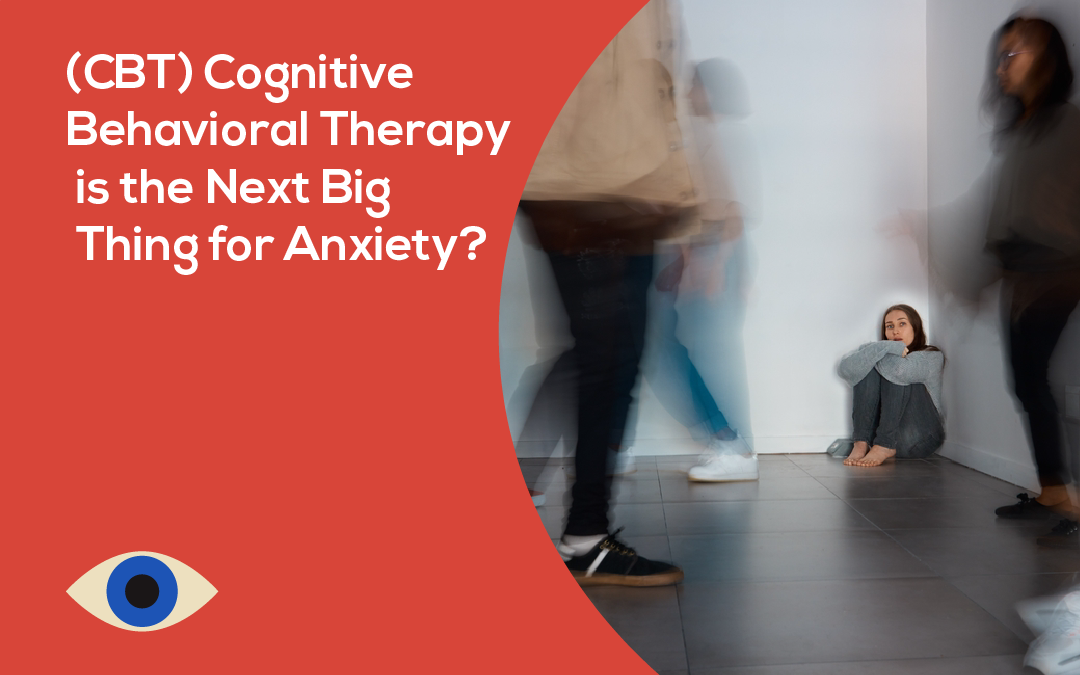Feeling stressed out and overwhelmed lately? Are you intimidated by medication, or do you prefer a more natural path? Well, you’re not alone! Cognitive Behavioral Therapy (CBT) is quickly gaining traction as the Next Big Thing (NBT) for conquering anxiety among individuals seeking effective, non-pharmaceutical options. Anxiety treatment is seeing a rise in the use of CBT. Scientific research shows these results are truly remarkable; they’re not just hype.
What Is CBT?

Your thoughts shape your feelings and behavior—that’s the basic idea behind CBT, a type of talk therapy. Imagine having a tool that flips your anxious thoughts upside down, transforming panic into peace. Negative thinking? Change is within your reach; this therapy provides the means. You’ll learn to pinpoint those negative thoughts and then challenge them. This is way better than I expected; it’s seriously strong. It really works.
Current Research & Trends
The research backing CBT is as robust as a fortified castle! Notably:
- A meta-analysis conducted in 2019 consolidated data from over 100 studies, confirming that CBT significantly reduces symptoms of anxiety for about 60% of participants.
- The It’s the APA. Anxiety treatment? CBT and medication are equally effective, reports say. People who prefer natural remedies will be thrilled. I can’t believe it – a significant step forward!
- Online platforms and apps providing CBT tools have surged in popularity, particularly amid the pandemic, making it more accessible than ever.
The Mechanics of CBT
How does CBT work its magic? Here’s a glimpse into its framework:
- Assessment: The first step is understanding thought patterns and behaviors related to anxiety.
- Cognitive Restructuring: This is where the fun begins! Individuals learn to break down and challenge their negative thoughts that fuel anxiety.
- Exposure Therapy: Gradual exposure to the source of anxiety in a controlled manner allows individuals to build tolerance and confidence.
- Skills Practice: Patients get daily assignments; this helps them learn and grow.
Results & Metrics
The numbers speak for themselves, and they’re singing the praises of CBT. According to the Journal of Anxiety Disorders, individuals who underwent CBT showed notable improvements:
- Reduction in Anxiety Symptoms: An average reduction of 50% to 75% in anxiety scores.
- Recurrence Rate: Only around 18%of individuals relapse into anxiety symptoms following therapy when combined with follow-up sessions.
- Long-lasting Effects: Many individuals report sustained improvements weeks and even months after completing treatment.
Why You Should Consider CBT
CBT isn’t just another therapy; it’s a transformational experience! Here are a few reasons why CBT may be your best ally in overcoming anxiety:
- Empowerment: You become the architect of your own mental health.
- Tools for Life: CBT skills aren’t just for anxiety; they help with everyday problems too.
- No Side Effects: For long-term treatment, CBT might be a better option than medication; it rarely causes side effects.
FAQ

Q: How long does CBT take to show results?
A: While individual experiences vary, many notice improvements within 5 to 10 sessions.
Q: Is CBT suitable for everyone?
A: Most individuals benefit from CBT, but it’s best to consult a mental health professional to determine if it’s right for you.
Q: Can I practice CBT on my own?
A: While self-help books and articles offer some assistance, a trained therapist provides customized strategies and improves your overall experience. This is because they can help you in ways a book or website can’t.
Q: Are there any online CBT programs?
A: Absolutely! Sites like these… Moodfit and Woebot. There’s Talkspace. Self-paced CBT exercises? Plenty of good choices are available.

Conclusion
To sum things up… CBT. That’s what they call it. Shift your thinking, and you’ll shift your actions. Anxiety medication isn’t the only answer. Feeling better is possible without drugs; this approach shows you how. Because it works, is easy to use, and keeps up with the times, CBT is the… The next big thing is coming. Anxiety? Yep, this’ll work. Wave goodbye to worry and say hello to peace! Ready for a big change?




0 Comments